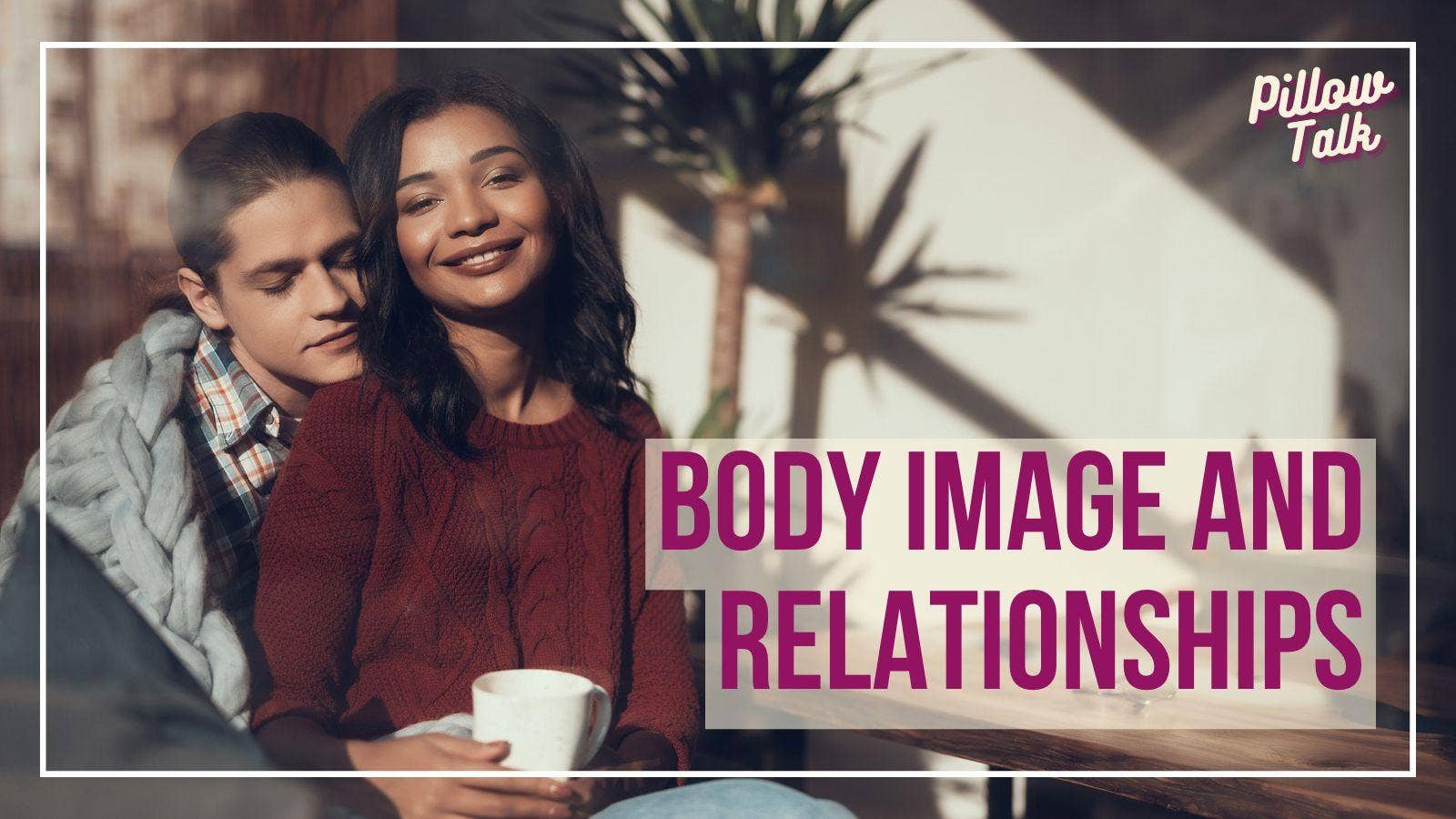Body Image and Relationships
We all have a complex relationship with our bodies with and without a partner.
“You can’t love anyone until you can love yourself.”
You’ve probably heard some iteration of that at some point (we’re looking at you, RuPaul). If it sounds like patronizing advice, that’s because it is. However, there is a kernel of truth in that old expression.
Your relationship with yourself can absolutely impact your relationship with other people: platonic, romantic, and professional. Low self-esteem takes a toll in all areas of life. It might be the reason you’re getting left behind at work, or you feel like there’s a barrier between you and your friends. If you feel like you’re not worthy of love or respect, positive attention from others can feel disingenuous or difficult to accept as true. And when you feel like you have to hide yourself, that can absolutely undermine your ability to open up to your partner or fully immerse yourself in your sexuality.
It’s normal to have a complex relationship with your body, so give yourself some grace. But this body is the only one you’ll ever have, and it is your ticket to experiencing life, so it’s worth learning how to get along with it.
Something to keep in mind is that self-love is not linear. Finding a way to be comfortable in your body that allows you to be comfortable around others is a complicated and sometimes slow process.
But where do you start?
You start with the person most affected: yourself.
There are some simple fixes: if you don’t like being naked while being intimate, find clothing that is adaptable for your activities and comfortable. If certain positions make you feel awkward or uncomfortable, explore other positions or techniques. You are not bound to the things that make you feel bad. Sometimes all it takes to feel better is to stop the behavior that makes you feel bad.
This isn’t a substitute for fixing your relationship with your body. If that’s the root of the problem, that’s what needs to be addressed. However, that tends to be a long-term goal, so it’s good to have strategies for feeling good in the now.
While you experiment with soft mood-lighting or wait for your new lingerie to arrive, make a plan for working toward long-term results.
Something that will serve you in the long term is to curate a space that helps you feel mentally healthier. If the only images you’re exposing yourself to are airbrushed photos of people who have the benefit of low-stress lifestyles, editing, and plastic surgery behind their looks, diversify what you’re consuming. Make a point to unfollow accounts online that contribute to your dysphoria, and follow more people who look like you. Allow yourself to get in touch with a diversity of bodies.
And give yourself time with your own body. Take time to really look at yourself. But don’t just look: touch, smell, taste, explore, and indulge in your body. Sometimes we decide we don’t like somebody because we don’t know them that well. And that same principle could be true of your own body.
It’s easy to become alienated from yourself. At the very least, connecting with your body will help desensitize you to what you look like. Sometimes all you need is to learn how to look at yourself to learn to accept yourself.
Let people in.
None of this is to say you need to put your relationships with others on hold while you figure out your relationship with yourself. On the contrary, having a partner or close friendships can be very affirming, especially if you inform them about your complicated feelings about your body. You are the only one who can change your relationship with your body, but you don’t have to work in isolation.
Discuss what you’re experiencing with your partner and explore ways to deepen your intimacy. Sex isn’t your only opportunity for connection, so try something like validating each other through your love languages.
Bedsider says the following about how partners can support each other: “This doesn’t mean that they are there to constantly give you compliments when you say bad things about yourself; but it does mean that they can be there to help you notice when you’re spiraling with negative thoughts, and kindly remind you to have a choice in reframing your perspective.”
Poor body image can feel isolating, but you don’t have to work through your self-image in isolation. We promise that you aren’t alone in what you’re going through.
You don’t have to be in a relationship to receive the benefits of having a partner while you work on your relationship with your body. Let your friends in on your experiences and where you are mentally. There’s a chance they might have a complicated relationship with their own body. It is very powerful to make space for you and people you love and trust to explore your problems and work through them


